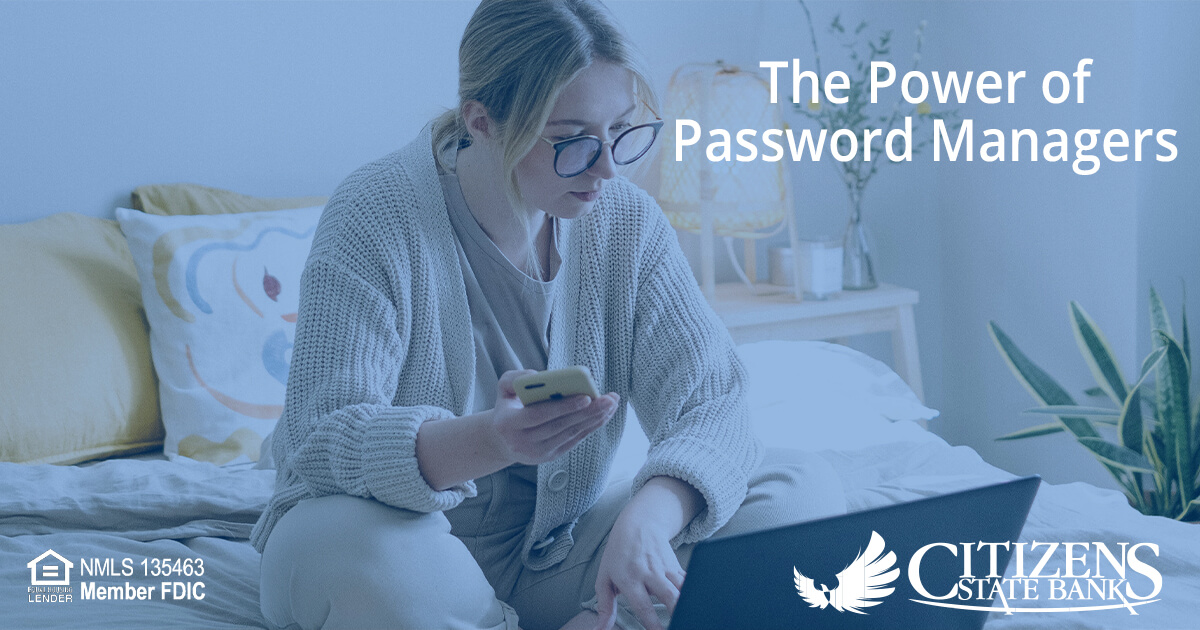August 3, 2023 •Noureen Njoroge, Cybersecurity Executive Professional

Like most people, you likely find creating, managing, and remembering all your different passwords a daunting task. It seems like every website has different password rules and many require additional security measures such as security questions. Wouldn’t it be great if there was a single solution to take care of all your password problems? There is. It’s called a password manager.
Password managers are a software solution that stores your passwords in a protected database, sometimes called a vault. The password manager encrypts the vault's contents and protects it with a primary password that only you know. When you need one of your passwords, you simply type your primary password into your password manager to unlock the vault. The password manager often integrates into your web browser and automatically retrieves the correct password and securely logs you into the website. This allows you to easily maintain a unique password for each of your accounts, which is critical to keeping your digital life secure.
In addition, most password managers include the ability to synchronize across multiple devices. When you update a password on one device, those changes are synchronized to all your other devices. Finally, most password managers detect when you're attempting to create a new online account and can create and store a new, unique password for you.
The only password you have to remember is the primary password you use to access your password manager. It's critical that you make this password long and unique. In fact, we recommend you make it a passphrase--a long password made up of multiple words or phrases. If your password manager supports multi-factor authentication, use that as well. Finally, it’s vitally important that you remember your primary password to avoid getting locked out of your password manager.
There are many password managers to choose from. In the Resources section below, you will find a link to reviews of password managers. Meanwhile, when trying to find the one that's best for you, keep the following in mind:
You may want to write down your primary password, store it in a sealed envelope, and secure the envelope in a protected location in case you forget.
We understand some people may find password managers overwhelming and too complicated to use. Yet to be secure, a unique password is still needed for each account. How can someone safely remember all those unique passwords? One option is to write those passwords down. This is not an option for work-related passwords. But this may be an alternative to use at home for personal accounts if password managers are simply not an option. The key step is securing that notebook. If you or a loved one does use a notebook to write passwords down, be sure that notebook is stored in a safe place that only you or trusted family members have access to.
Password Manager Review: https://www.pcmag.com/picks/the-best-password-managers
Multi-Factor Authentication: https://www.sans.org/newsletters/ouch/one-simple-step-to-securing- your-accounts/
Noureen Njoroge is a Cybersecurity Executive Professional with vast experience in multifaceted, complex, fast-paced environments in both the public and private sectors. She is a strategic thinker with proven leadership experience on issues concerning emerging technologies. Noureen is a people leader who is also passionate about mentoring others.
The views, information, or opinions expressed in this article are solely those of the author and do not necessarily represent the views of Citizens State Bank and its affiliates, and Citizens State Bank is not responsible for and does not verify the accuracy of any information contained in this article or items hyperlinked within. This is for informational purposes and is no way intended to provide legal advice.